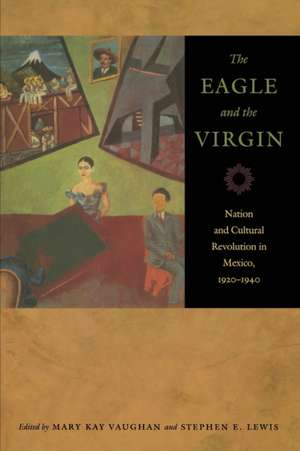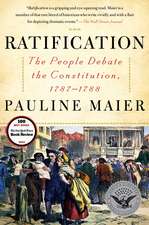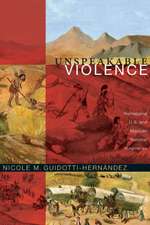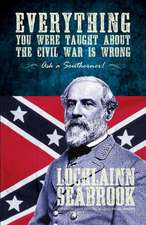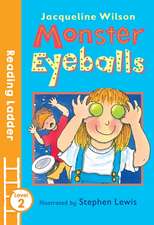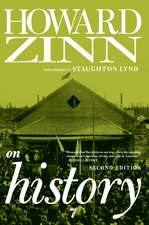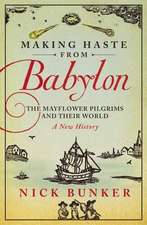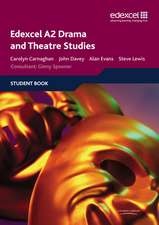The Eagle and the Virgin – Nation and Cultural Revolution in Mexico, 1920–1940
Autor Mary Kay Vaughan, Stephen Lewisen Limba Engleză Paperback – 12 mar 2006
Preț: 304.69 lei
Nou
Puncte Express: 457
Preț estimativ în valută:
58.33€ • 60.86$ • 48.90£
58.33€ • 60.86$ • 48.90£
Carte tipărită la comandă
Livrare economică 12-26 martie
Preluare comenzi: 021 569.72.76
Specificații
ISBN-13: 9780822336686
ISBN-10: 0822336685
Pagini: 396
Ilustrații: 36 illustrations (20 in colour)
Dimensiuni: 159 x 234 x 27 mm
Greutate: 0.58 kg
Editura: MD – Duke University Press
ISBN-10: 0822336685
Pagini: 396
Ilustrații: 36 illustrations (20 in colour)
Dimensiuni: 159 x 234 x 27 mm
Greutate: 0.58 kg
Editura: MD – Duke University Press
Cuprins
List of Illustrations xii
Acknowledgments ix
Introduction / Mary Kay Vaughan and Stephen E. Lewis 1
I. The Aesthetics of Nation Building
The Noche Mexicana and the Exhibition of Popular Arts:
>The Sickle, the Serpent, and the Soil: History, Revolution, Nationhood, and Modernity in the Murals of Diego Rivera, Jose Clemente Orozco, and David Alfaro Siqueiros / Desmond Rochfort 43
Painting in the Shadow of the Big Three
Frida Kahlo / Sarah M. Lowe 53
Maria Izquierdo / Adrianna Zavala 67
The Mexican Experience of Marion and Grace Greenwood / James Oles 79
Mestizaje and Musical Nationalism in Mexico/ Marco Velazquez and Mary Kay Vaughan 95
Revolution in the City Streets: Changing Nomenclature, Changing Form, and the Revision of Public Memory / Patrice Elizabeth Olsen 119
II. Utopian Projects of the State
Saints, Sinners, and the State Formation: Local Religion and Cultural Revolution in Mexico / Adrian A. Bantjes 137
Nationalizing the Countryside: Schools and Rural Communities in the 1930’s / Mary Kay Vaughan 157
The Nation, Education, and the “Indian Problem” in Mexico, 1920–1940 / Stephen E. Lewis 176
For the Health of the Nation: Gender and the Cultural Politics of Social Hygiene in Revolutionary Mexico / Katherine E. Bliss 196
III. Mass Communication and Nation Building
Remapping Identities: Road Construction and Nation Building in Postrevolutionary Mexico / Wendy Waters 221
National Imaginings on the Air: Radio in Mexico, 1920–1950 / Joy Elizabeth Hayes 243
Screening the Nation / Joanne Hershfield 259
IV. Social Construction of Nations
An Idea of Mexico: Catholics in the Revolution / Jean Meyer 281
Guadalajaran Women and the Construction of National Identity / Maria Teresa Fernandez Aceves 297
“We Are All Mexicans Here”: Workers, Patriotism, and Union Struggles in Monterrey / Michael Snodgrass 314
Final Reflections: What Was Mexico’s Cultural Revolution? / Claudio Lomnitz 335
Contributors 351
Index 357
Acknowledgments ix
Introduction / Mary Kay Vaughan and Stephen E. Lewis 1
I. The Aesthetics of Nation Building
The Noche Mexicana and the Exhibition of Popular Arts:
>The Sickle, the Serpent, and the Soil: History, Revolution, Nationhood, and Modernity in the Murals of Diego Rivera, Jose Clemente Orozco, and David Alfaro Siqueiros / Desmond Rochfort 43
Painting in the Shadow of the Big Three
Frida Kahlo / Sarah M. Lowe 53
Maria Izquierdo / Adrianna Zavala 67
The Mexican Experience of Marion and Grace Greenwood / James Oles 79
Mestizaje and Musical Nationalism in Mexico/ Marco Velazquez and Mary Kay Vaughan 95
Revolution in the City Streets: Changing Nomenclature, Changing Form, and the Revision of Public Memory / Patrice Elizabeth Olsen 119
II. Utopian Projects of the State
Saints, Sinners, and the State Formation: Local Religion and Cultural Revolution in Mexico / Adrian A. Bantjes 137
Nationalizing the Countryside: Schools and Rural Communities in the 1930’s / Mary Kay Vaughan 157
The Nation, Education, and the “Indian Problem” in Mexico, 1920–1940 / Stephen E. Lewis 176
For the Health of the Nation: Gender and the Cultural Politics of Social Hygiene in Revolutionary Mexico / Katherine E. Bliss 196
III. Mass Communication and Nation Building
Remapping Identities: Road Construction and Nation Building in Postrevolutionary Mexico / Wendy Waters 221
National Imaginings on the Air: Radio in Mexico, 1920–1950 / Joy Elizabeth Hayes 243
Screening the Nation / Joanne Hershfield 259
IV. Social Construction of Nations
An Idea of Mexico: Catholics in the Revolution / Jean Meyer 281
Guadalajaran Women and the Construction of National Identity / Maria Teresa Fernandez Aceves 297
“We Are All Mexicans Here”: Workers, Patriotism, and Union Struggles in Monterrey / Michael Snodgrass 314
Final Reflections: What Was Mexico’s Cultural Revolution? / Claudio Lomnitz 335
Contributors 351
Index 357
Recenzii
"The Eagle and the Virgin is a necessary book, a selection of essays which allows readers to see in detail how a nation is invented and reinvented, how it experiences its achievements and its customs, both the good and the bad; and how it is internationalized and nationalized (since by 1940 Mexico was both a more cosmopolitan country and a more Mexican one). A delightful work.--Carlos Monsiváis
"Steeped in a generation of new cultural and transnational analysis of state formation and popular expression, The Eagle and the Virgin raises the bar for studies of nation building and cultural politics in postrevolutionary Mexico. Particularly impressive is the volumes sensitive analysis of contests over religious culture and symbols, its gendered understanding of state formation, and its handsomely illustrated treatment of the development of a Mexican revolutionary aesthetic.--Gilbert M. Joseph, coeditor of The Mexico Reader: History, Culture, Politics
"The Eagle and the Virgin is an excellent overview of the different cultural, political and social movements that helped to shape an image for the nation after the Mexican Revolution of 1910. Fabiola Martínez Rodríguez, Art History, Summer 2009
"The Eagle and the Virgin is a necessary book, a selection of essays which allows readers to see in detail how a nation is invented and reinvented, how it experiences its achievements and its customs, both the good and the bad; and how it is internationalized and nationalized (since by 1940 Mexico was both a more cosmopolitan country and a more Mexican one). A delightful work."--Carlos Monsivais "Steeped in a generation of new cultural and transnational analysis of state formation and popular expression, The Eagle and the Virgin raises the bar for studies of nation building and cultural politics in postrevolutionary Mexico. Particularly impressive is the volume's sensitive analysis of contests over religious culture and symbols, its gendered understanding of state formation, and its handsomely illustrated treatment of the development of a Mexican revolutionary aesthetic."--Gilbert M. Joseph, coeditor of The Mexico Reader: History, Culture, Politics "The Eagle and the Virgin is an excellent overview of the different cultural, political and social movements that helped to shape an image for the nation after the Mexican Revolution of 1910." Fabiola Martinez Rodriguez, Art History, Summer 2009
"Steeped in a generation of new cultural and transnational analysis of state formation and popular expression, The Eagle and the Virgin raises the bar for studies of nation building and cultural politics in postrevolutionary Mexico. Particularly impressive is the volumes sensitive analysis of contests over religious culture and symbols, its gendered understanding of state formation, and its handsomely illustrated treatment of the development of a Mexican revolutionary aesthetic.--Gilbert M. Joseph, coeditor of The Mexico Reader: History, Culture, Politics
"The Eagle and the Virgin is an excellent overview of the different cultural, political and social movements that helped to shape an image for the nation after the Mexican Revolution of 1910. Fabiola Martínez Rodríguez, Art History, Summer 2009
"The Eagle and the Virgin is a necessary book, a selection of essays which allows readers to see in detail how a nation is invented and reinvented, how it experiences its achievements and its customs, both the good and the bad; and how it is internationalized and nationalized (since by 1940 Mexico was both a more cosmopolitan country and a more Mexican one). A delightful work."--Carlos Monsivais "Steeped in a generation of new cultural and transnational analysis of state formation and popular expression, The Eagle and the Virgin raises the bar for studies of nation building and cultural politics in postrevolutionary Mexico. Particularly impressive is the volume's sensitive analysis of contests over religious culture and symbols, its gendered understanding of state formation, and its handsomely illustrated treatment of the development of a Mexican revolutionary aesthetic."--Gilbert M. Joseph, coeditor of The Mexico Reader: History, Culture, Politics "The Eagle and the Virgin is an excellent overview of the different cultural, political and social movements that helped to shape an image for the nation after the Mexican Revolution of 1910." Fabiola Martinez Rodriguez, Art History, Summer 2009
Notă biografică
Mary Kay Vaughan is Professor of History at the University of Maryland, College Park. Her books include "Cultural Politics in Revolution: Teachers, Peasants, and Schools in Mexico, 1930-1940." She is a coeditor of the journal "Hispanic American Historical Review."Stephen E. Lewis is Associate Professor of History at California State University, Chico. He is the author of "The Ambivalent Revolution: Forging State and Nation in Chiapas, 1910-1945."
Textul de pe ultima copertă
"Steeped in a generation of new cultural and transnational analysis of state formation and popular expression, "The Eagle and the Virgin" raises the bar for studies of nation building and cultural politics in postrevolutionary Mexico. Particularly impressive is the volume's sensitive analysis of contests over religious culture and symbols, its gendered understanding of state formation, and its handsomely illustrated treatment of the development of a Mexican revolutionary aesthetic."--Gilbert M. Joseph, coeditor of "The Mexico Reader: History, Culture, Politics"
Descriere
Collection of essays focusing on cultural policy and production after the Mexican revolution
